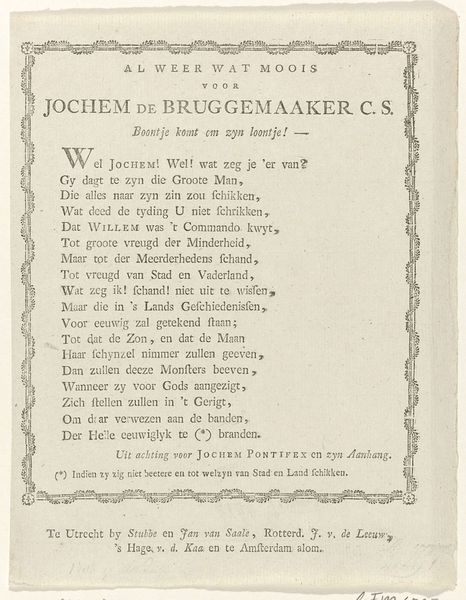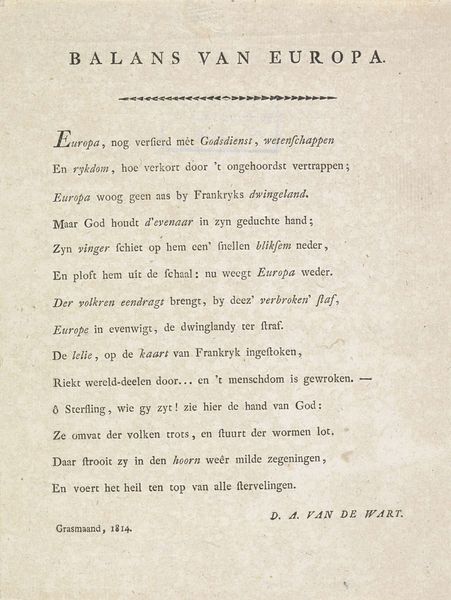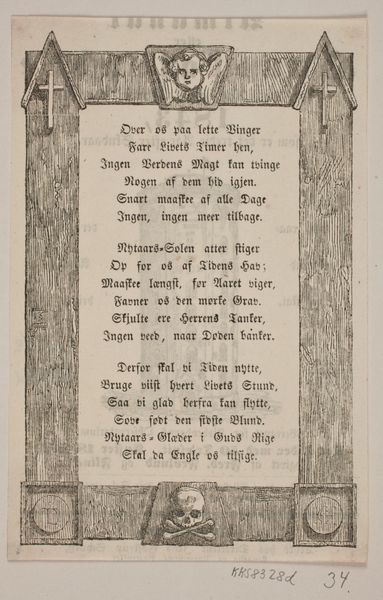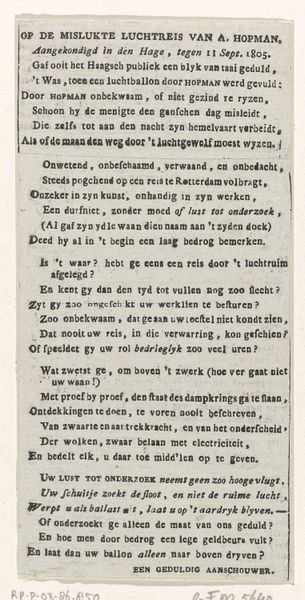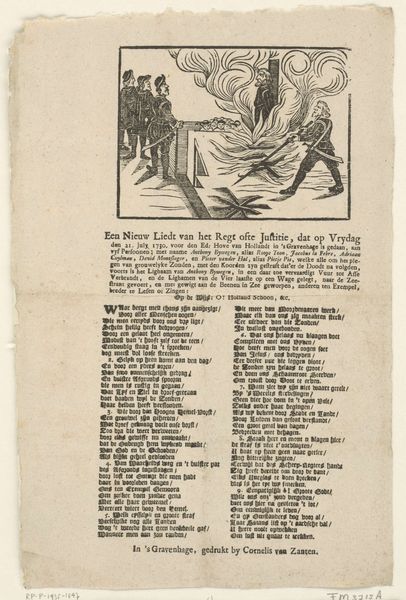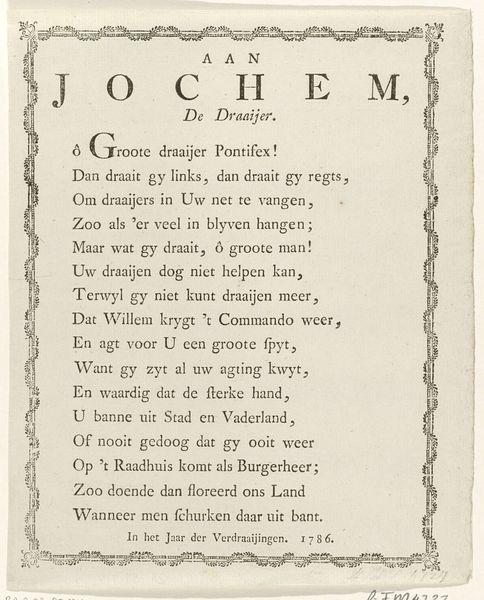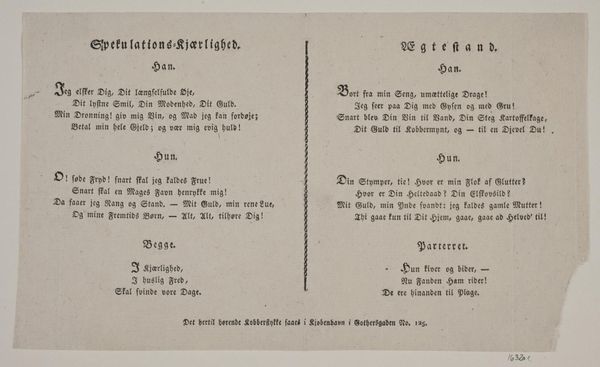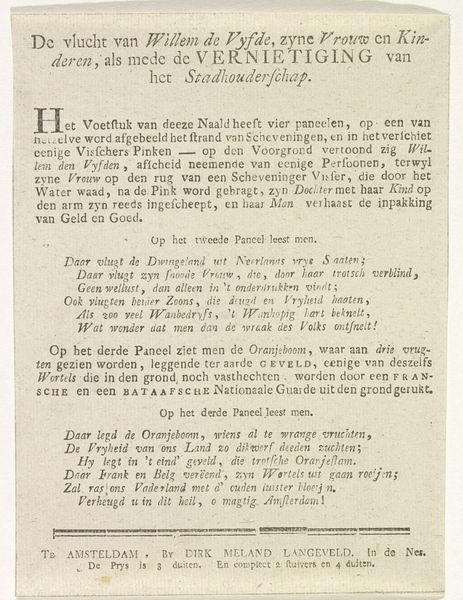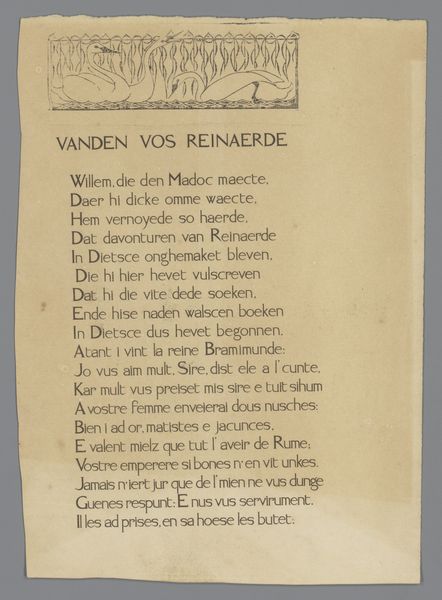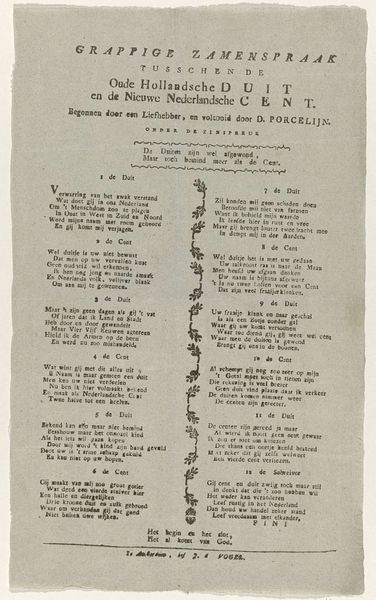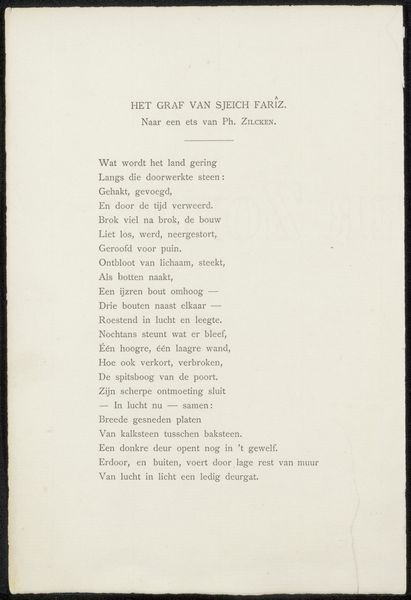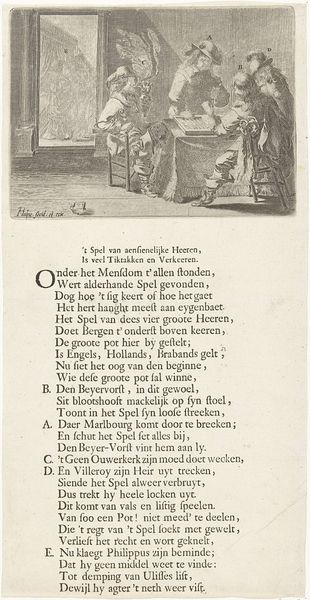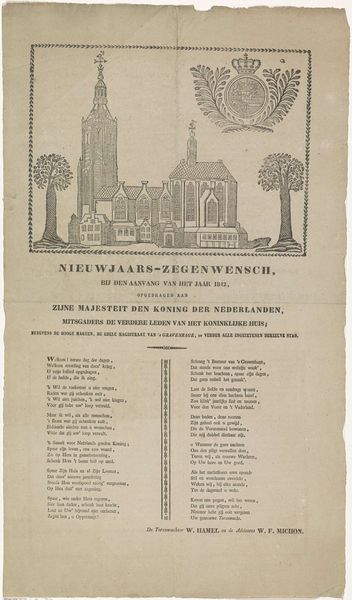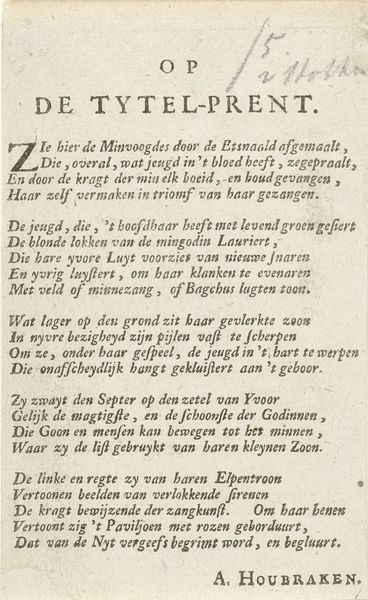
print, typography, poster, engraving
#
aged paper
# print
#
old engraving style
#
text
#
paragraph style
#
typography
#
old-timey
#
thick font
#
history-painting
#
handwritten font
#
golden font
#
poster
#
word imagery
#
engraving
#
historical font
#
columned text
Dimensions: height 300 mm, width 186 mm
Copyright: Rijks Museum: Open Domain
This satirical poem, made in 1786 by an anonymous artist, is a Kermis gift – a fair gift – aimed at Jochem de Bruggemaaker, or Jochem the Bridge-Maker. The primary symbol here is the bridge itself, repeated in the text, it represents connection and transition, but in this context, a flawed or failing structure. The idea of a bridge, however, goes beyond mere physical construction. Throughout history, the bridge appears as a metaphor for spiritual or cognitive connections, as seen in the Bifröst Bridge in Norse mythology, linking Midgard and Asgard. But here, the bridge is 'too little weight', thus suggesting a failure in leadership or governance. The poem suggests the 'bridge' built by Jochem lacks the support of freedom. The image of a bridge, burdened with political weight, unable to fulfill its promise, speaks to the cyclical nature of power and its potential for collapse, echoing the eternal human struggle between aspiration and reality. The reference to brewing and a kettle where one might 'smother' adds layers of political intrigue. It is a potent blend of wit and warning.
Comments
No comments
Be the first to comment and join the conversation on the ultimate creative platform.
